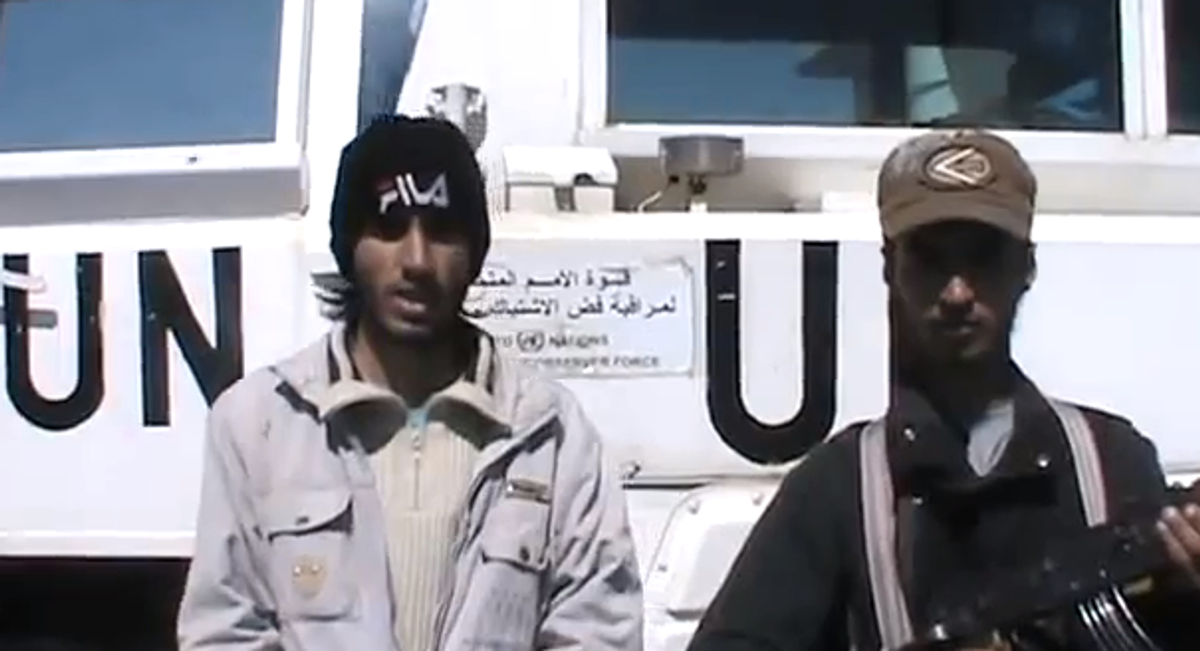Syrian rebels who on Wednesday seized 21 U.N. peacekeepers in the Golan Heights as hostages have told negotiators they will not harm their captives, but demand that Bashar al-Assad's forces pull back from the region before they will let them free.
The peacekeepers, who were stationed in the Israeli-annexed Golan Heights, were all from the Philippines. However, as the Jerusalem Post reported,"the Philippines does not expect any concrete action by Israel to help free [the peacekeepers], in order to avoid dragging Israel into Syria's conflict, the country's ambassador said Thursday." However, Israel has warned that it will not “stand idle” as Syria’s civil war breaches its contested borders -- Israel has already admitted to launching a number of airstrikes across the Syrian border and near Damascus over the past months.
Peacekeepers of the U.N. Disengagement Force mission have been monitoring a cease-fire line between Syria and the Israeli-occupied Golan Heights, for nearly four decades.
The U.N. has strongly denied that the hostage situation fueled criticism of Western countries such as Britain giving aid to the Syrian rebels. Najib Ghadbian, the Syrian National Coalition’s ambassador to the U.S. and the U.N., told the Guardian:
No, it’s absolutely not accurate to say that. All friends should understand that the Free Syrian Army is not all unified, even if there are large efforts and strides to have that command structure ...
The detention of the UN observers was not something in line with the policy of that command structure … The political and military leadership, we believe that the UN is our ally and they are doing great work …
It’s not unlikely to find a group here and there who are not necessarily part of that structure but once we were able to contact them and we were able to influence them and bring them in line with our policy.



Shares